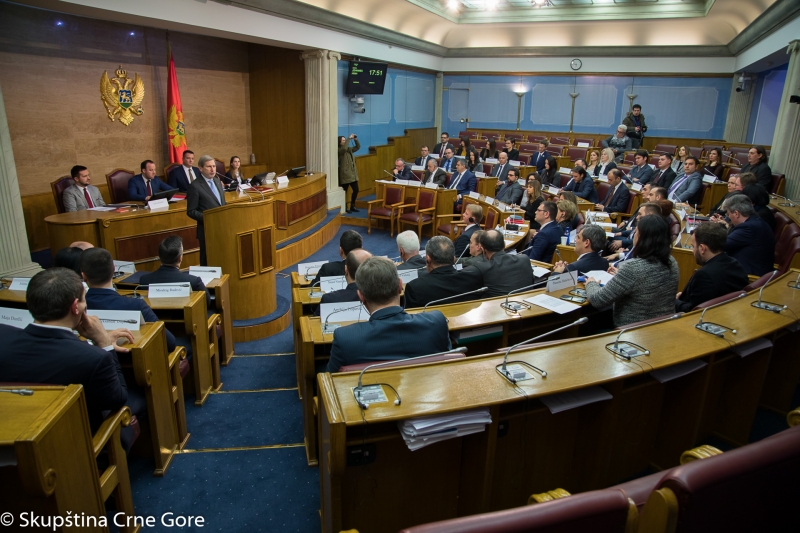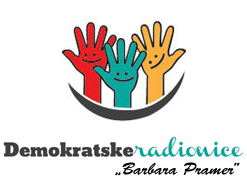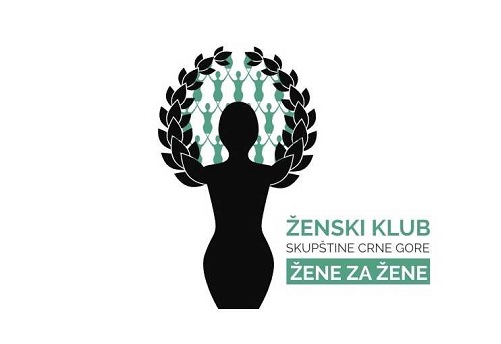European Commissioner for European Neighbourhood Policy and Enlargement Negotiations Mr Johannes Hahn has communicated messages from the Strategy “A credible enlargement perspective for and enhanced EU enlargement with the Western Balkans“, at today’s first joint meeting of the Committee on European Integration and the Committee on International Relations and Emigrants.
The European Commissioner stressed that this was a historic moment for Montenegro, the countries of the Western Balkans, the region, and Europe. A few days ago the European Commission presented its Western Balkans Strategy, which confirmed that the EU's commitment to Montenegro's accession was firm and unquestionable, Mr Hahn stressed and added that the Western Balkans had a common heritage and history, and a future defined by shared opportunities and challenges.
He assessed that the Western Balkans strategy outlined the path, how Montenegro would be ready for membership in a 2025 perspective, and that this path would depend entirely on Montenegro’s objective merits and results. “I am very grateful that Montenegro sets an example on the other key criterion good neighbourly relations and regional cooperation and for the fact that it has already made good progress on accession negotiations”, the European Commissioner said, adding that he was looking forward to further progress of Montenegro.
In the end, European Commissioner Hahn expressed readiness of the EU to support Montenegro in its work ahead, while the EU itself, as he said, would be ready institutionally and financially to welcome new member states once they have met the conditions.
Chairperson of the Committee on European Integration Mr Adrijan Vuksanović noted that the Strategy set out general guidelines for a faster process of integration of all countries in the region, emphasising priority areas for implementing reforms and improving the existing situation.
Mr Vuksanović expressed pleasure with the fact that integration of the Western Balkans was highly positioned on the European agenda, which was a chance and incentive for Montenegro.
The Chairperson of the Committee on European Integration added that a number of European institutions stressed that Montenegro, on the basis of previous results, was a frontrunner in the EU integration, what, as he stressed, deserved trust and support of the EU member states. “I believe that by joint action, through investing in candidate countries and opening doors to new members, the EU can remain a successful project, thereby confirming unity as its core value, and implementing the idea that every European state is a member of the European Union”, Mr Vuksanović concluded.
Chairperson of the Committee on International Relations and Emigrants Mr Andrija Nikolić sees the Western Balkans strategy as a strong promotion of the European integration idea, with the aim shared by everybody - to make it more relevant and credible. “We in Montenegro believe that the new energy in enlargement politics is a key for long-term sustainability of European unity, but also for raising integration enthusiasm of the Western Balkans countries”, Mr Nikolić stressed and added that Montenegro's enlargement by 2020, as noted by the Strategy, was an ambitious but feasible plan.
Mr Nikolić said that he was particularly looking forward to the fact that the European Commission clearly stated, in its Strategy, that it would keep a principle significant for Montenegro, that the individual merits of candidates would be valued, and that the EU would strengthen its presence in the Western Balkans, as a necessary pre-condition for its further development.
The Chairperson of the Committee on International Relations and Emigrants stressed that he believed that Montenegro would successfully overcome all challenges on the remaining section of the European road, and that, with good and partnering understanding of its friendly countries within the EU, and in cooperation with the EU institutions, it would be able to meet its obligations even before the set deadline and become a member of the European family of nations. “That is our national priority”, Mr Nikolić concluded.
Foreign Minister Mr Srđan Darmanović and Minister of European Affairs Mr Aleksandar Andrija Pejović addressed the present in the continuation of the meeting.
Members of two parliamentary committees, representatives of MP groups, as well as representatives of the invited NGOs posed questions to the European Commissioner.



















